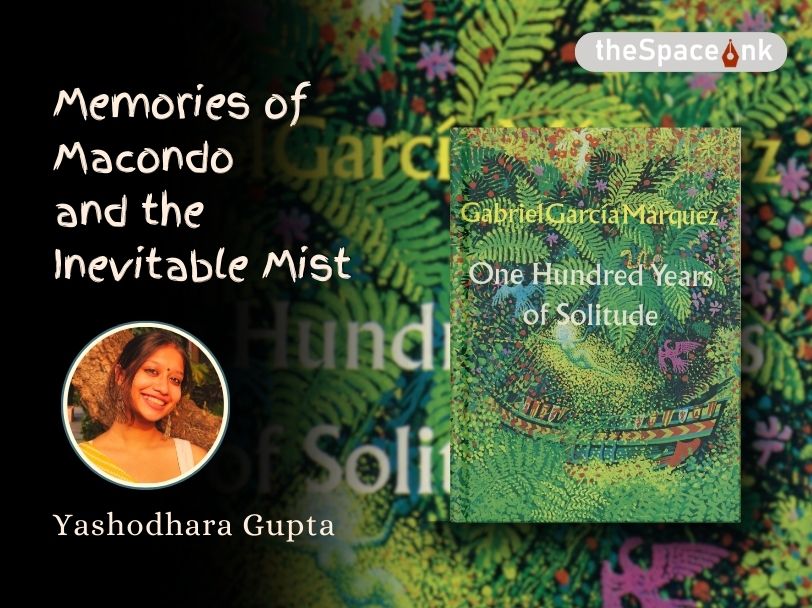Maxim Gorky spent a few years (1906-1913) of his life in the Mediterranean town of Capri in southern Italy. In his Italian tales he masterfully depicts the Italian working class, portraying their simple and sensitive lives with the familiar flair of the socialist realist that he was.
The sun melts in the blue midday sky, pouring hot, many-coloured rays on to the water and the earth. The sea slumbers and exhales an opal mist, the bluish water glistens like steel. A strong smell of brine is carried to the lonely shore.
The waves advance and splash lazily against a mass of grey stones; they roll slowly upon the beach and the pebbles make a jingling sound; they are gentle waves, as clear as glass, and there is no foam on them.
The mountain is enveloped in a violet haze of heat, the grey leaves of the olive-trees shine like old silver in the sun; in the gardens which cover the mountain-side the gold of lemons and oranges gleams in the dark velvet of the foliage; the red blossoms of pomegranate-trees smile brightly, and everywhere there are flowers.
How the sun loves the earth!
There are two fishermen on the stones. One is an old man, in a straw hat. He has a heavy-looking face, covered on cheeks and chin and upper lip with grey bristles; his eyes are embedded in fat, his nose is red, and his hands are sunburnt. He has cast his pliant fishing-rod far out into the sea, and he sits upon a rock, his hairy legs hanging over the green water. A wave washes up and bathes them, and from the dark toes clear, heavy drops of water fall back into the sea.
Behind the old man, leaning with one elbow on a rock, stands a tawny black-eyed fellow, thin and lank. On his head is a red cap, and a white jersey covers his muscular torso; his blue trousers are rolled up to the knee. He tugs with his right hand at his moustache and looks thoughtfully out to sea; in the distance black streaks of fishing boats are moving, and far beyond them, scarcely visible, is a white sail; the white sail is motionless, and seems to melt like a cloud in the sun.
“Is she a rich signora?” the old man inquires, in a husky voice, as he makes an unsuccessful effort to cross his knees.
The young man answered quietly:
“I think so. She has a brooch, and earrings with large stones as blue as the sea, and many rings, and a watch…. I think she is an American.”
“And beautiful?”
“Oh yes! Very slender, it is true, but such eyes, just like flowers, and, do you know, a mouth so small, and slightly open.”
“It is the mouth of an honest woman and of the kind that loves but once in her life.”
“I think so too.”
The old man drew in his rod, winked as he looked at the hook, and muttered with a laugh:
“A fish is no fool, to be sure.”
“Who fishes at midday?” asked the youth, getting down on his knees.
“I,” replied the old man, putting on fresh bait. And, having thrown the line far into the sea, he asked:
“You rowed her till the morning, you said?”
“The sun was rising when we got out on the shore,” readily replied the young man, with a heavy sigh.
“Twenty lire?”
“Yes.”
“She might have given more.”
“She might have given much.”
“What did you speak to her about?”
The youth seemed annoyed and lowered his head gloomily.
“She does not know more than ten words, so we were silent.”
“True love,” said the old man, looking back and showing his strong teeth in a broad smile, “strikes the heart like lightning, and is as dumb as lightning, you know.”
The young man picked up a large stone and was about to throw it into the sea; but he threw it back over his shoulder, saying:
“Sometimes one cannot understand what people want with different languages.”
“They say some day it will be different,” said the old man, after a moments thought.
Over the blue surface of the sea, in the far-off milky mist, noiselessly glides a white steamer, like the shadow of a cloud.
“To Sicily,” said the old man, nodding towards the steamer.
From somewhere or other he took a long, uneven, black cigar, broke it in two and, handing one half over his shoulder to the young man, asked:
“What did you think about as you sat with her?”
“Man always thinks of happiness.”
“That’s why he is always so stupid,” the old man put in quietly.
They began to smoke. The blue smoke wreaths hung over the stones in the breathless air which was impregnated with the rich odour of fertile earth and gentle water.
“I sang to her and she smiled.”
“Eh?”
“But you know that I sing badly.”
“Yes, I know.”
“Then I rested the oars and looked at her.”
“Aha!”
“I looked, saying to myself: ‘Here am I, young and strong, while you are languishing. Love me and make me happy.'”
“Was she feeling lonely?”
“Who that is not poor goes to a strange land if he feels merry?”
“Bravo!”
“I promise by the name of the Virgin Mary—I thought to myself—that I will be kind to you and that everybody shall be happy who lives near us.”
“Well, well!” exclaimed the old man, throwing back his large head and bursting into loud bass laughter.
“I will always be true to you.”
“H’m.”
“Or—I thought—let us live together a little while; I will love you to your heart’s content; then you can give me some money for a boat and rigging, and a piece of land; and I will return to my own dear country and will always, as long as I live, remember and think kindly of you.”
“There’s some sense in that.”
“Then—towards the morning—it seemed to me that I needed nothing, that I did not want money, only her, even if it were only for one night.”
“That is simpler.”
“Just for one single night.”
“Well, well!” said the old man.
“It seems to me, Uncle Pietro, that a small happiness is always more honest.”
The old man was silent. His thick, shaven lips were compressed; he looked intently into the green water. The young man sang quietly and sadly:
“Oh, sun!”
“Yes, yes,” said the old man suddenly, shaking his head, “a small happiness is more honest, but a great happiness is better. Poor people are better-looking, but the rich are stronger. It is always so.”
The waves rock and splash. Blue wreaths of smoke float, like nymphs, above the heads of the two men. The young man rises to his feet and sings quietly, his cigar stuck in a corner of his mouth. He leans his shoulder against the grey side of the rock, folds his arms across his chest, and looks out to sea with the eyes of a dreamer.
But the old man is motionless, his head has sunk on his breast and he seems to doze.
The violet shadows on the mountains grow deeper and softer.
“O sun!” sings the youth.
“The sun was born more beautiful,
More beautiful than thou!
Bathe me in thy light,
O sun!
Fill me with thy life!”
The green waves chuckle merrily.
Maxim Gorky also spelled Maksim Gorky was the founder of socialist realism and is considered one of the most influential Russian authors of the twentieth century.








